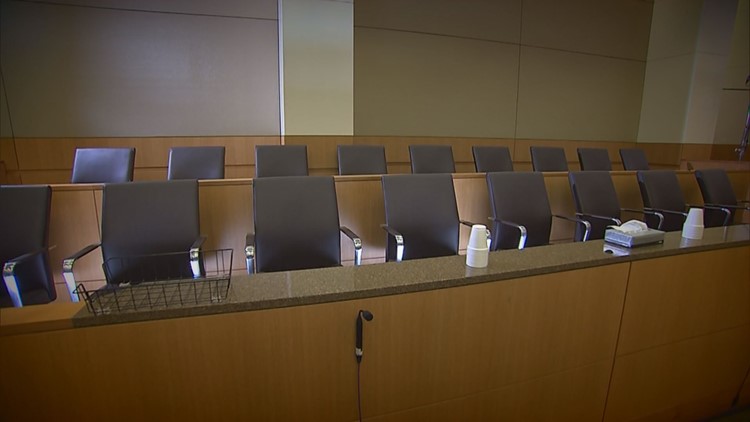The jurors in the Jodi Arias sentencing trial do seem to agree on one thing: By the end of their five days of deliberations, they weren't eating, weren't sleeping and were exhausted.
But Juror 17, the holdout who saved Arias from the death penalty, and the 11 jurors who voted to execute her, disagree on what happened inside the jury room during deliberations.
The majority say Juror 17 wasn't communicating. Juror 17 says the 11 other jurors weren't listening.
"It got to the point where it felt like harassment," she said in an exclusive interview with 12 News. "Like I was being harassed."
PART THREE: Why Arias Juror 17 spared killer's life
12 News is not disclosing Juror 17's identity, just as we have not disclosed the identities of the 11 other jurors. This interview came about when Juror 17's attorneys offered it to me without my having asked for it. I did not cover the Arias trials but I have worked with Juror 17's attorneys in the past on other sensitive stories. There were no conditions placed on this interview.
For all 26 hours of deliberations, Juror 17 said, she was the only one holding out against sentencing Arias to die for killing her ex-boyfriend Travis Alexander. The other jurors, she says, tried everything to change her mind.
"Pictures, crime scene pictures were thrown in front of me," she said. "It was pretty brutal in there."
She described a moment when tensions peaked.
"I was sitting between two really strong personalities and the person that was sitting next to me sometimes would get so mad, that he would pull away from the table. And I could kind of feel like the rage coming off of him."
Juror 17 says she found a refuge from the jury room in the bathroom.
"During breaks I would go in the restroom and hide out in there and just praying to God," she said. "'Show me the right decision to make. Am I wrong? Show me God, please help me with this.'"
But the other jurors say Juror 17 was no help at all.
According to a court transcript, the 11 other jurors told Judge Sherry Stephens that Juror 17 was "ineffective in deliberating" and wouldn't "clearly articulate reasons for views."
"I was the only one that everything was basically being directed to," Juror 17 said of the questions in the jury room.
"It was a bit intimidating when everybody in the room is basically saying that you're wrong and is not willing to hear or respect your opinion. It's just wrong. I feel that I explained everything."
After the hung jury was announced, the other jurors spoke to reporters about Juror 17. Several said she had an agenda.
"The one holdout had her mind made up from the beginning," according to one of the jurors, whose identities were shielded. "The biggest thing that angered me was that she alluded that the death penalty would be a form of revenge."
Juror 17 confirms she did vote against the death penalty on the first day of deliberations. Seven jurors voted for it, she says, four were undecided; by the end of the first day, 11 voted for death.
"It is something I gave a lot of thought to," Juror 17 said. "I didn't vote for life on a whim."
But as the lone juror who would prevent 11 other jurors from sending Jodi Arias to the death chamber, she said, "I knew that without a doubt my decision was going to haunt me."



